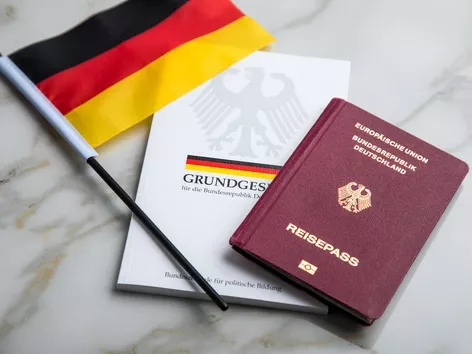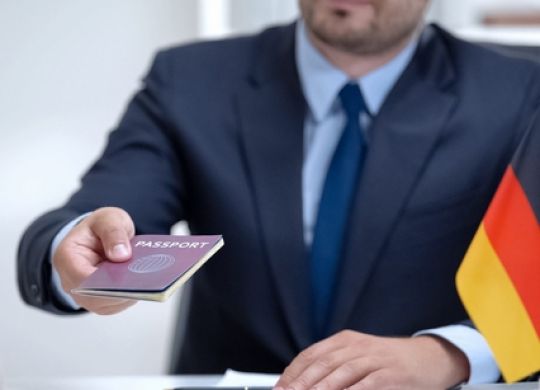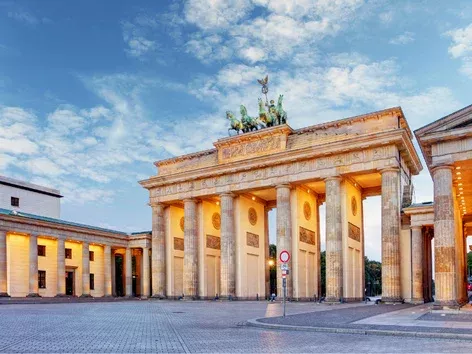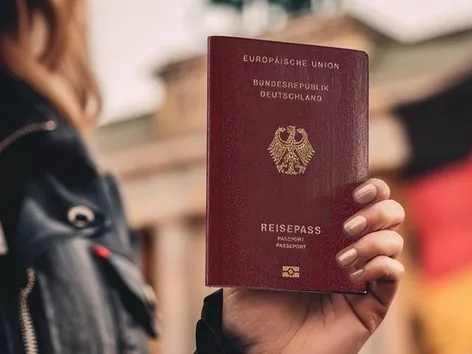Germany Ends Fast-Track Citizenship and Temporarily Bans Family Reunification for Migrants: what is known?
Table of contents
- Family reunification in Germany temporarily suspended
- Germany canceled the simplified citizenship procedure for 3 years
- How will the changes in migration policy affect foreigners in Germany?
- Political context and increased border control in Germany
- When will the new immigration rules in Germany come into effect?
- How should foreigners act under the new rules?

In 2025, Germany tightened immigration rules: it banned family reunification for individual refugees, revoked citizenship for 3 years, and approved new border restrictions. Find out what has changed, who will be affected by the changes, and how foreigners can act this summer
In 2025, Germany officially tightened immigration rules: it temporarily suspended family reunification for certain categories of refugees and canceled the simplified citizenship procedure. These changes have already caused concern among foreigners living in the country, including citizens of Paraguay, Costa Rica, and Papua New Guinea, and may significantly affect their future.
Everything currently known about the latest changes in German migration policy can be read in this article.
Choose a reliable health insurance policy on the Visit World portal to protect yourself from unforeseen expenses during your move. Support from a trusted insurance agent with a guaranteed payout in just a couple of clicks!
Family reunification in Germany temporarily suspended
Starting in 2025, the family reunification procedure for persons with temporary (subsidiary) protection has been suspended for two years. This status is granted to foreigners fleeing war or threats in their country but who are not recognized as refugees under the Geneva Convention.
Minister of the Interior Alexander Dobrindt stated that this decision aims to reduce the burden on municipalities responsible for housing and integrating migrants.
"We have already applied this practice from 2016 to 2018 — and it was effective," said Dobrindt.
Asylum in Germany is regulated under paragraphs 24 and 25 of the Residence Act.
Germany canceled the simplified citizenship procedure for 3 years
The government also canceled the rule that allowed obtaining German citizenship after 3 years of residence, provided high integration (for example, language skills, employment, active participation in social life).
Now the minimum period has been restored to 5 years, complicating the plans of thousands of migrants already in the naturalization process.
Authorities justify this decision by wanting to eliminate “pull factors” for illegal migrants.
How will the changes in migration policy affect foreigners in Germany?
These migration policy changes have several serious consequences:
1. Separation from family: foreigners with subsidiary protection will not be able to bring relatives for the next two years.
2. Delay in citizenship: even well-integrated migrants will have to wait longer to receive a German passport.
3. Increased uncertainty: new rules may leave genuine asylum seekers without clear prospects.
Political context and increased border control in Germany
The reforms are part of Chancellor Friedrich Merz’s election program, who promised to limit migration and strengthen border protection. The government has already introduced additional checks to stop illegal migrants’ entry, including asylum seekers.
European countries are gradually restoring border control at their internal borders; additional checks have already been introduced in 12 countries. Read in this article which countries have new rules, under what conditions, and for how long the extra controls will be in place.
Although this provokes criticism from human rights defenders and EU neighbors, the authorities insist the reforms are necessary to reduce pressure on the system and curb the influence of right-wing extremist forces.
When will the new immigration rules in Germany come into effect?
The new laws are expected to pass the final parliamentary vote by July 2025.
They will take effect this summer.
How should foreigners act under the new rules?
Foreigners in Germany should plan their immigration path in advance, considering the 2025 restrictions:
1. Carefully check protection status.
2. Seek alternative legal ways for family reunification.
3. Prepare citizenship documents according to the new terms.
4. Consult lawyers and migration advisors.
If you are unsure how the 2025 changes in German migration policy will affect you or plan to apply for citizenship or family reunification – it is better to contact a lawyer. Qualified specialists help: adapt strategies to new laws, prepare document packages, support cases at different stages, and file appeals in complex cases.
Contact a reliable immigration lawyer today!
In 2025, Germany effectively “rebooted” its migration policy: tightened border controls, canceled accelerated citizenship, and temporarily banned family reunification for some refugees. This decision could become a serious challenge for thousands of migrants already in the country or planning to move.
Reminder! From July 2025, Germany cancels the possibility to appeal visa refusals without court proceedings. We have already explained what will change, how to prepare documents correctly, and what to do in case of refusal.
Products from Visit World for a comfortable trip:
Checklist for obtaining a visa and necessary documents in Germany;
Legal advice on business issues in Germany;
Travel insurance for foreigners in Germany;
Medical insurance around the world.
We monitor the accuracy and relevance of our information, so if you notice any errors or inconsistencies, please contact our hotline.
Recommended articles
2 min
Work
Work in Germany in 2025: work visa, vacancies and changes in migration legislation
In 2025, Germany introduced visa reforms to attract talent from around the world, as the country faces a severe labor shortage. In particular, during this year the country planned to issue 400,000 work visas. Find out what changes to migration legislation await foreigners in Germany in 2025, which positions are better for expats to get a job and the current procedure for obtaining a work visa
10 lut. 2025
More details1 min
Residence permit
Jak ubiegać się o zezwolenie na pobyt w Niemczech: wymagania i wymagane dokumenty
Niemcy zezwalają obcokrajowcom na pobyt na swoim terytorium przez okres dłuższy niż 90 dni. W tym celu wymagane jest jednak zezwolenie na pobyt. Dowiedz się więcej o rodzajach zezwoleń na pobyt, dokumentach wymaganych do rejestracji i wymogach uzyskania zezwolenia na pobyt w Niemczech
22 maj. 2025
More details2 min
Work
Best Jobs in Germany for Foreigners 2025: In-Demand Positions, Salaries and Career Tips
Germany continues to be one of the top destinations for expats, offering numerous job opportunities in 2025. Find out which professions will be most in demand, as well as tips to help you successfully find a job in this country
14 maj. 2025
More details1 min
Expats
German citizenship in 2025: abolition of the accelerated procedure and new realities for immigrants
Germany is making important changes to its citizenship policy in 2025. Find out which naturalization procedure has been abolished, why the government decided to end this path to citizenship, which procedure remains relevant, and how these changes will affect immigrants planning to apply for citizenship
25 kwi. 2025
More detailsAll materials and articles are owned by VisitWorld.Today and are protected by international intellectual property regulations. When using materials, approval from VisitWorld.Today is required.
